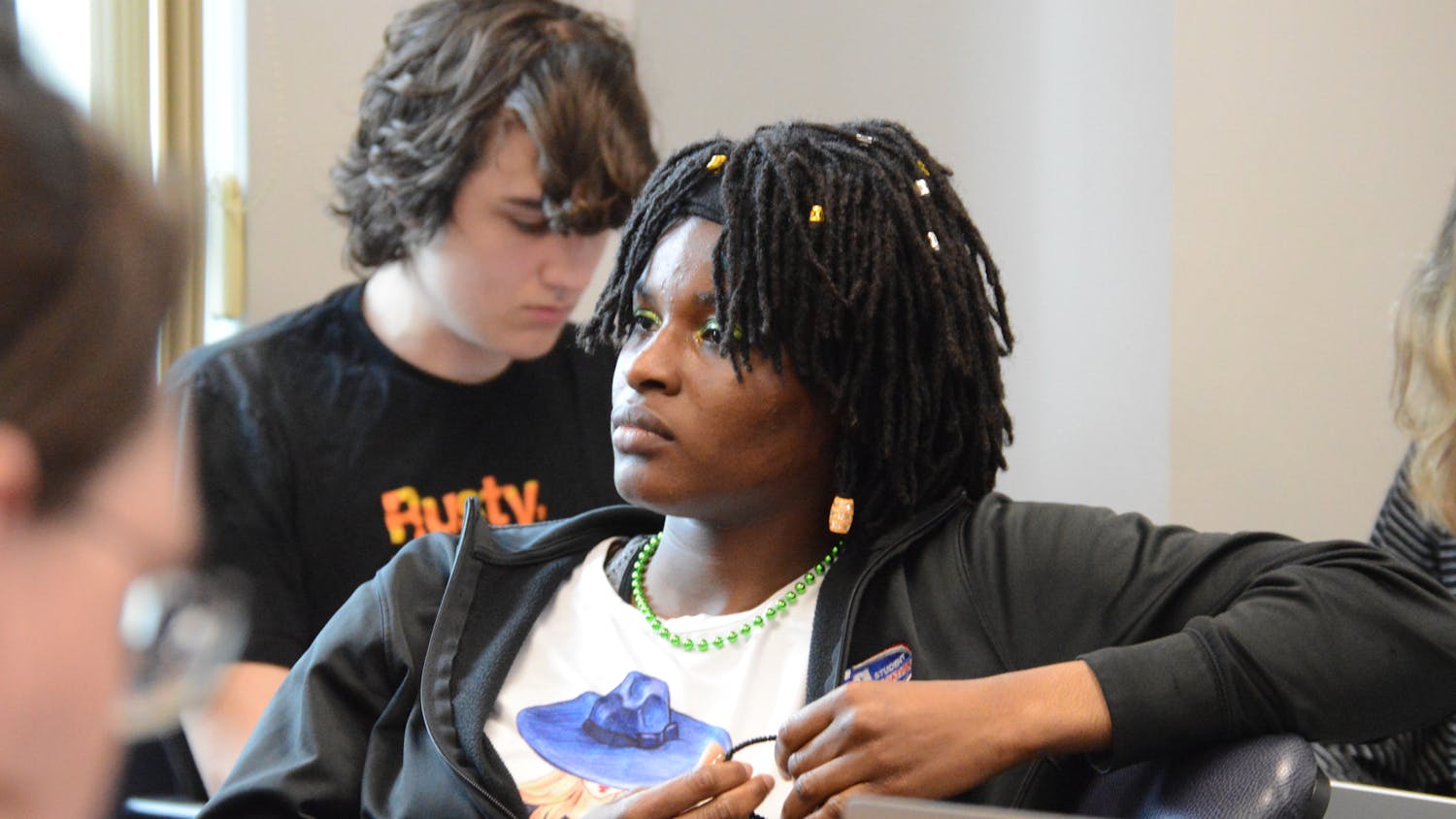Two schools sit on opposite sides of the American-Canadian border, but their distance doesn't keep them from working together. Instead, the unique proximity is allowing UB and Brock University to establish a joint degree.
They're establishing a joint interdisciplinary Master of Arts degree in Canadian-American studies. It is a concerted effort by the Canadian Studies Academic Program in the Department of Transnational Studies at UB and the Faculty of Humanities at Brock University, located in St. Catharines, Ontario.
"This is [the] first international joint degree being offered by the entire SUNY system, so students in this program will be pioneers in higher education in the state," said D. Munroe Eagles, a UB professor of political science, in an email.
Eagles is a Nova Scotia native and the director of the Canadian Studies Academic Program. He is also a key figure in developing the program.
The interdisciplinary program allows students to approach their respective studies from both American and Canadian perspectives. The joint degree will cover a wide variety of disciplines ? students will study a "comparative analysis of social, economic, political and cultural issues in the two countries," according to Brock University's course website.
However, a particular focus will be on the shared Niagara region and border. Students will investigate "the challenges and opportunities that the border provides to citizens in terms of realizing their common interests and objectives," Eagles said.
The program commences this fall and will take place on both UB and Brock University campuses. Students will study at both universities during the program.
The new program is part of an agreement between President Satish Tripathi and President Jack Lightstone of Brock University signed on Feb. 1. The agreement extends the two universities' partnership in education and research for five more years; the original one was signed in 2007 by Lightstone and former UB president John Simpson.
"[The signing] was a wide-ranging meeting at which the presidents and provosts of the two institutions discussed a number of promising opportunities for expanding cooperation relating to economic development in the bi-national Buffalo Niagara region, cross-disciplinary research in targeted areas of mutual interest and exchange of faculty and students," Stephen Dunnett told UB News Center. Dunnett is the vice provost for international education and a professor of foreign language education.
"I joined the program because I believe it will be relevant to my future and the future of the Buffalo/Niagara area," said Bobbie Thoman, a UB graduate with a bachelor's degree in political science, in an email.
Thoman sees environmental policy as one of the issues that needs to be fixed as her generation enters the professional world and believes the joint degree program will help her gain a better understanding of both countries' policies.
"When dealing with the environment, in regards to protecting land and resources, there is no border," she said. "What we do here in the United States directly affects Canada's air and water quality and vice versa. Therefore, it is important to understand policies and opinions on both sides of the border to make environmental decisions."
She thinks the location of UB and Brock University "couldn't be more perfect."
"I think an 'international joint degree' is a very exciting thing," Thoman said. "It's one thing to sit in a classroom and learn about the Canadian government and policies, but an entirely different experience to go over there and learn what's going on firsthand."
Eagles also sees the need for a firsthand experience in learning on both campuses. He believes "the deep and rich array of faculty expertise and interest" would not have been available to students otherwise. He said it's beneficial for American students to interact with their Canadian counterparts and immerse themselves in the Canadian education environment.
UB provides many opportunities for students to gain an international educational experience. For instance, the university has numerous study abroad programs that students can engage in. Nonetheless, Eagles believes the joint M.A. program will offer students something different.
"It is impossible to be indifferent to the opportunities that any international educational experience provides," Eagles said. "But this particular program puts this experience within easy reach of UB (and Brock) students by taking advantage of the fact that ? for our campuses ? the international is local."
The joint M.A. program has come a long way. It was conceived five years ago in a discussion between Eagles and Jane Koustas, an associate professor and former associate dean of humanities and director of the Canadian studies program at Brock. They had brought their Canadian studies seminars together and students found these joint meetings to be very valuable, Eagles said, so he and Koustas considered a joint M.A. degree.
The program, for which a proposal was written in 2010, finally received approvals from the New York State and Ontario governments recently, Eagles said.
"Obtaining official approvals for the program, not only at the campus level but within the system and state/provincial levels, has been a major challenge for both [universities]," Dunnett said in an email. "Brock and UB have worked very closely to make this happen and thus have strengthened their partnership in the process."
As part of the agreement for the program, participating students will have unlimited access to resources of both Brock and UB without having to pay additional tuition, according to Eagles.
Despite the challenges met along the way, Dunnett is optimistic about similar collaborations in the future.
"We certainly hope this first program of its kind is successful and leads to other joint degree programs," Dunnett said. "If so, these are likely (in the short term at least) to be with Brock University, since a truly joint international program (one that isn't purely online) requires the physical proximity of the partner institutions so that participating students can move back and forth between the campuses in doing the program."
In the meantime, the joint M.A. program plans to welcome its initial cohort this fall, which will consist of six students of different disciplines from each university.
Email: news@ubspectrum.com




